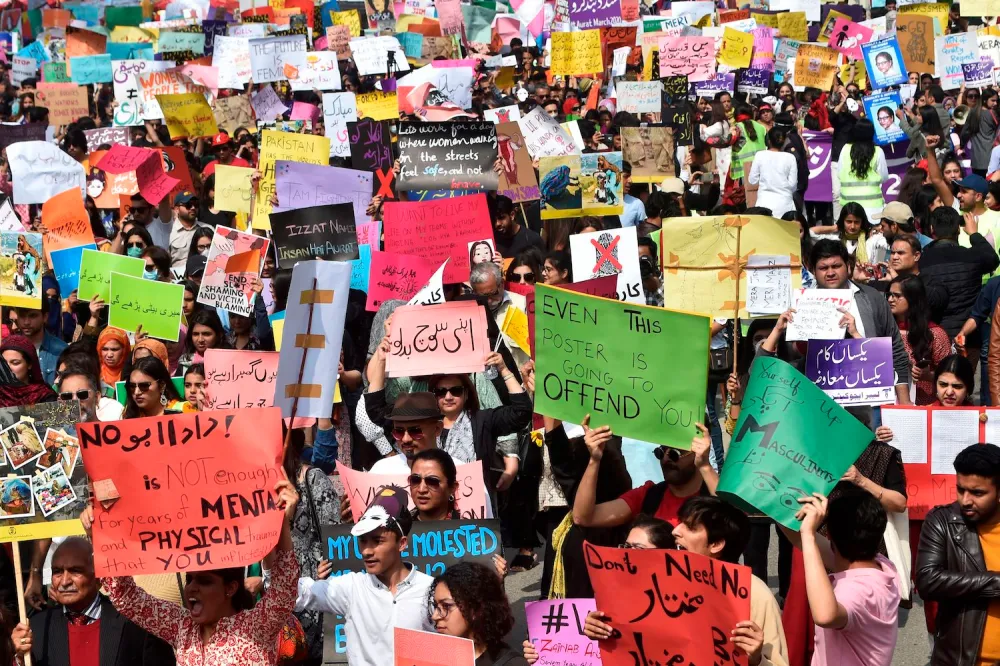Pakistan’s unique governance system, unlike secular states such as Turkey, is officially known as the Islamic Republic of Pakistan. It is governed by federal and provincial bodies that adhere to the Constitution of 1973. The judicial system, comprising civil courts, criminal courts, and the Sharia court, ensures that the country’s laws are in accordance with Islamic law and rights.
However, the presence of the Federal Shariat Court—an authority with the constitutional power to prohibit laws deemed un-Islamic by the Pakistani parliament—raises concerns regarding the potential constraints on individual freedoms. Article 16 guarantees freedom of assembly, article 17 ensures freedom of association, and article 19 upholds freedom of speech and expression. Despite these constitutional guarantees, the practical exercise of these rights is limited, particularly concerning women’s rights and freedom of expression.
The COVID-19 pandemic exacerbated societal challenges, leading to increased poverty, unemployment, and a growing divide between urban and rural spaces. Amid these difficulties, women, especially those in the labor force and domestic workers, bore the brunt of the pandemic’s impact, facing job losses and heightened violence. Yet, their resilience and determination in the face of these challenges is truly inspiring.
Pl watch the video and subscribe to the channel.
Pakistan’s history is marked by a struggle for women’s rights, particularly during the 1980s under the rule of Zia Ul Haq. His measures to suppress women’s civic spaces led to the formation of the Women’s Action Forum, the first feminist movement in Pakistan. This forum played a crucial role in challenging discriminatory laws and advocating for women’s rights, paving the way for subsequent movements like the Alliance Against Sexual Harassment and Aurat March.
However, contemporary challenges persist, with young feminists facing threats and harassment. Social media has become a battleground where women encounter cyberbullying and threats, affecting their sense of safety and security. This underscores the importance of the fight for civic spaces and women’s rights, a cause that demands our engagement and commitment.
Looking ahead, it is imperative to mobilize and empower young women in advocacy to bring about structural changes and uphold women’s rights. Despite the obstacles, these movements persist in their resistance and march for transformative change, underscoring the crucial role of young women in finding solutions and ensuring equal rights for all citizens of Pakistan.
Women’s rights are crucial for the Pakistani state and society for several reasons. First and foremost, upholding women’s rights is essential for fostering a fair and just society. When women are granted equal rights and opportunities, it not only benefits them individually but also contributes to the overall development and progress of the nation. Empowering women economically, politically, and socially can lead to greater productivity, innovation, and creativity, which are vital for the growth of any society. Furthermore, ensuring women’s rights helps in building a more inclusive and democratic society, where all individuals have the chance to contribute to the betterment of the nation. In addition, respecting and protecting women’s rights is essential for creating a safe and secure environment for all members of society.
By addressing issues such as gender-based violence, discrimination, and inequality, the state can work towards creating a society where everyone can live without fear and where everyone’s rights are respected. Therefore, prioritizing women’s rights is not just a matter of equality, but also a fundamental requirement for the progress and stability of the Pakistani state and society.
















